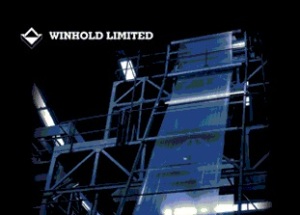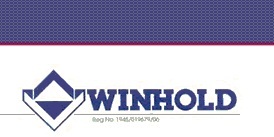Grant Scrutton is Finance director of Winhold Limited which is a JSE-listed holding company with its main investments being in its subsidiaries, Gundle Limited and Inmins Limited. Gundle manufactures polyethylene bags, construction sheeting, consumer and industrial packaging, agricultural film and dam linings and distributes to the agricultural, chemical, construction, food processing, industrial and consumer markets, as well as installing dam linings in sub-Sahara Africa. Inmins comprises 19 strategically located operations servicing the mining and industrial sectors with a wide range of consumable and maintenance products, and includes divisions specialising in hose, mining pipe systems, chain and sprocket systems and conveyor belting.
Which skills do you think a finance professional should master to be successful in his/her work?
First off, I would say time management. There is always more work to do than time permits and you need to prioritise, delegate and manage this precious commodity more than anything else.
Reliable information collection is a very important skill to have. Inevitably, you are only as good as the information you get in and usually not the “existing information” (that information that is already being managed); it’s getting the missing pieces - in time - that makes or breaks one.
Staying on top of the technical side of things is another crucial skill. IFRS, legislation, sustainability, IT systems, technology, communication channels, funding channels, Basel are all evolving very fast. If you don’t stay with the wave, you will not catch up. Teamwork is important too. Even though accountants are trained “individual technocrats”, they need to be team builders and leaders to survive and flourish.
Finally, perseverance: Getting the information and data required to be effective just does not “happen” in South Africa; you have to build and reinforce information systems and personal networks and then still fight to get it correct, on time and relevant.

What do you enjoy most about your job?
The challenge – it is never boring, never the same, never “done”. You enjoy your wins, absorb the lessons and look forward to every new curve ball that comes your way. I also enjoy the people – it’s them that make it all happen and whether you are successful or unhappy.
What do you find most challenging about your position?
Getting enough time to do the “real work” of the job (as opposed to the deluge of e-mails and paperwork)and sending all the “slippery monkeys” (other people’s jobs) back to them are the most challenging parts of my position.
E-mails are another challenge – if you do not manage it, it can become a full time occupation, but take you away from your real job, are another real challenge.
Which achievement or project in your business career are you most proud of?
Turning around the South African Coal Mine Holdings (SACMH) subsidiary of the Royal Bafokeng while it was still in the listed (in the public eye) environment is one of my greatest achievements. This was a test of all that I had learned - from closing businesses, restructuring, raising finances, corporate finance transactions, people and team “maintenance” during “dark days”, managing difficult stakeholder expectations, dealing with competitive bids and finally earning an “at risk” salary.
Is accurate forecasting and budgeting still feasible for a financial department in today’s tumultuous financial markets?
Budgets are usually out of date before they are effective, but are a critical element of “periodic stability” in a fast moving environment of “rolling forecasts”. The budget is a “once-a-year hard look” at the cost side of the business (for middle management cost control – do not underestimate this need). Budgets are also usually the costed result of a “strategy” (even if it is a “do nothing different strategy”) that needs to be “negotiated” as a base-lining for medium term planning.
Rolling forecasts are then relevant to managing the macro stakeholders’ expectations and modifying team targets (e.g. “catch up” on bad months to get better results to meet the real targets the market requires).
How do you see the role of the CFO evolving in the next five to ten years?

CFOs have for many years been the COOs of the business – managing the “internal issues” and leaving the CEOs the time and capacity to manage all the external challenges of the business. Areas that international CFOs are only now being held responsible for (risk management, legal compliance, contract management, sustainability, etc.) have been a feature of South African CFOs’ lives for many years now.
As many businesses now take on separate COOs , many CFOs are becoming more focused on “pure finance” issues - dealing with new sources of finance, tighter control of bank facilities, better planning and management of cash flows, more exposure to international transactions (FX, Law, Tax, etc), system optimization, covenant management, etc. – almost a step back from “operations” and step forward in “specialization”.
I believe the real challenge for the next ten years is “scaffolding” a weaker middle management as the last middle management generation emigrated and the new one is very young, lacking practical experience, culturally very different and needs “fast track” training. These challenges include training, information management and better MI system implementations.
How do you perceive the status of cooperation and lifelong learning between finance professionals in South Africa?
“Life-long learning” is a compulsory element of staying with the “wave of change” this industry and this country has been through in the last 10 years and will go through for the next decade. This includes but is not limited to: IFRS, legislation, sustainability, IT systems, technology, communication channels, funding channels and Basel.
This is just too hard to do on your own; there are so many changes that you need a “support group” of fellow “swimmers” to share the “change spotting & learning” and make the process more “participative” and, ultimately, more ”fun”.
I think what has been hardest is the feeling of “loneliness” – I seem to be the only one battling with all these changes required and need a source of fresh ideas, early warning systems other potential solutions for rolling out within the team.

What do you see as the greatest challenge for South African companies in the current global economic situation - and for your industry in particular?
Know your strengths – for 25 years South Africans have been able to do almost everything from a business point of view, because there was no real competition. As a result we became a nation of “generalists” with one person doing several jobs (because it was more cost effective).
We have, for example, a whole manufacturing industry that is dying under the Chinese cost efficiency and we do not see the writing on the wall. We have to change what we do and how we do it to remain relevant in the “real world’ and we have too little experience at doing this (and our mentors never had any). Become a specialist and stay ahead of the world in that speciality!
In manufacturing (where we are), we need to niche in those sectors of the market that are not commodities, where service (turnaround, quality, short fats runs, delivery, technical value add) can be provided and let the Chinese meet the low cost long run commodity production requirements – which they will get anyway.
Who is your role model or mentor? And what did you learn from them?
My role model is Jack Welsh – making changes to make the business more effective (profitable) and not accepting the inertia and direction of large organisations.
My mentor was Myron Berzack (of Bidvest) who was a “jackal” in a nation of conformists and made a living out of changing the rules to stay ahead of a commodity pack.
What vital piece of advice would you give young ambitious finance professionals?
You obviously have to work both hard and smart to get ahead of the pack. But have fun while you are doing it. This profession really is a “marathon” and you do not need to kill yourself (and family life) to get there a day / month / year early and if you do, you will not have the stamina to stay there anyway.
If you also would like to share your ideas with the CFO community, please get in touch with us to arrange an interview with you. Please contact Jurriën Morsch on [email protected].











